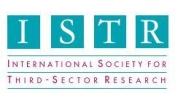Abstract
The World Social Forum (WSF) is the premier site of activist civil society, aiming to prove that “Another World is Possible” through networking and creativity for social change. The WSF’s origins in the global struggles against neoliberalism and war at the turn of the millennium required a form that transcended standard sectoral transnational solidarity but that was not open to political vanguardism. Hence the style of most WSF events since the 2001 founding has been an “open-space” festival-type set of conference panels and large plenaries. But at some point the lack of coherence and inability to draw participants from their single-issue silos became a source of frustration. Occasional attempts to add political programmatic content have faltered. There is an open question as to whether the WSF will change from its open, unstructured format, and whether the world’s critics of status quo economics, politics, gender/race relations, and environmental policy will generate further strategies for international collaboration.
Access this chapter
Tax calculation will be finalised at checkout
Purchases are for personal use only
Similar content being viewed by others
References
Anand, A., Escobar, A., Sen, J., and Waterman, P. (eds) (2003). Are Other Worlds Possible? The Past, Present, and Futures of the World Social Forum, New Delhi, Viveka.
Anheier, H., and Katz, H. (2004). Network approaches to global civil society. In H. Anheier, M. Glasius, and M. Kaldor (eds) Global Civil Society 2004/05 (pp. 206–221), London, Sage.
Barchiesi, F., Bohmke, H., Naidoo, P., and Veriava, A. (2006). Does Bamako appeal? The World Social Forum versus the life strategies of the subaltern. Unpublished paper, Workshop on the World Social Forum, Centre for Civil Society, University of KwaZulu-Natal, Durban.
Bello, W. (2002). Deglobalization, London, Zed Books.
Bello, W. (2007). The Forum at the crossroads. Foreign Policy in Focus commentary, http://www.fpif.org/fpiftxt/4196
Blau, J., and Karides, M. (eds) (2008). The World and US Social Forums: A Better World is Possible and Necessary, Amsterdam, Brill.
Bond, P. (2005). Discussing the Porto Alegre Manifesto. ZNet Commentary, http://www.zmag.org/sustainers/content/2005-02/22bond.cfm
Centre for Civil Society (CCS). (2006). CCS WIRED. University of KwaZulu-Natal, Durban.
de Sousa Santos, B. (2004). Globalizing Resistance: The State of Struggle, London, Pluto Press.
Esping-Andersen, G. (1991). The Three Worlds of Welfare Capitalism, Princeton, NJ, Princeton University Press.
Ferguson, J. (2006). Global Shadows, Durham, NC, Duke University Press.
Fisher, W., and Ponniah, T. (eds) (2003). Another World is Possible: Popular Alternatives to Globalization at the World Social Forum, London, Zed.
Grubacic, A. (2003). Life after Social Forums: New radicalism and the questions of attitude towards Social Forums.http://www.nadir.org/nadir/initiativ/agp/free/wsf/life-after-sf.htm
Hardt, M., and Negri, A. (2004). Multitude, New York, Penguin.
Klein, N. (2003). The hijacking of the World Social Forum. http://www.nologo.org
Pambazuka. (2007). Reports on the World Social Forum.http://www.pambazuka.org/blogs/wsf2007/
Sen, J. (2004). World Social Forum: Challenging Empires, New Delhi, Viveka Foundation.
Sen, J., Kumar, M., Bond, P., and Waterman, P. (eds) (2007). A Political Programme for the World Social Forum? Democracy, Substance and Debate in the Bamako Appeal and the Global Justice Movements, New Delhi/Durban, CACIM/CCS.
Taylor, R. (ed.) (2004). Creating a Better World: Interpreting Global Civil Society, Bloomfield, CT, Kumarian Press.
Author information
Authors and Affiliations
Corresponding author
Editor information
Editors and Affiliations
Rights and permissions
Copyright information
© 2010 Springer Science+Business Media, LLC
About this chapter
Cite this chapter
Bond, P. (2010). The World Social Forum. In: Taylor, R. (eds) Third Sector Research. Springer, New York, NY. https://doi.org/10.1007/978-1-4419-5707-8_23
Download citation
DOI: https://doi.org/10.1007/978-1-4419-5707-8_23
Published:
Publisher Name: Springer, New York, NY
Print ISBN: 978-1-4419-5706-1
Online ISBN: 978-1-4419-5707-8
eBook Packages: Humanities, Social Sciences and LawSocial Sciences (R0)





